Singapore
Keppel's Alpha unit in talks to buy $130 million China apartment block
Keppel's Alpha unit in talks to buy $130 million China apartment block
Keppel Land’s unit Alpha Investment Partners is in exclusive negotiations with Morgan Stanley Real Estate Asia to acquire the Jinlin Tiandi complex in downtown Shanghai.
Singapore Exchange improves monthly market statistics report
SGX intensifies service by consolidating and providing additional information on various financial markets.
Tiger Airways launches Singapore – Hong Kong flights
Inauguration of twice-daily flights on Feb. 1 was slated to welcome the Year of the Tiger.
MotorMuse launches online car portal
Now you can buy or sell a car online in Singapore. Singapore-based online automobile marketing company, MotorMuse Private Limited, today launched a new web portal, www.MotorMuse.com, allowing individuals and dealers are able to post their cars for sale on the site for free. Says MotorMuse Founder & Managing Director, Damien Pang said: “Buying or selling a vehicle means having to deal with 3rd parties, time spent sourcing prices and quotes from numerous sources and then the whole process of actually handling the ton of paperwork involved.” The site would provide expert and impartial service for the customer instead of the customer having to seek it himself. Its mobile broking service offered under the company’s Buy/Sell Assist program, takes care of the messy paperwork involved in trading used vehicles. It also coordinates & facilitates deals between individuals, settles agreements,pre-purchase inspections & reports, finance, e-transfer, insurance and offers warranties for used cars, all at low prices. Billing itself as “more than just a website”, MotorMuse.com allows Singapore consumers to surf the automotive turf with a simple, interactive platform to browse, buy and sell cars 24/7. The portal, which also caters to distributors and dealers, offers an extensive repository of online news articles, videos and motoring knowledge for visitors to the site. MotorMuse Partner, Mike Amour said: “We're all consumers ourselves, and the idea came from extensive feedback from the market, industry partners and consumers, all of whom have echoed the same sentiments – that of wanting more choice. The simple premise of MotorMuse is to give the market another option. MotorMuse empowers people with a service that makes the business of buying and selling cars as easy, informed, secure and hassle-free as possible”. MotorMuse is a digital media company that provides an integrated platform for exporters, dealers and private buyers & sellers to buy and sell cars locally and internationally.
Limiting dependence on foreign workforce eyed
Singapore should keep the number of foreign workers at current levels, as recommended by the government's economic strategies committee.
SingPost warns delivering profits getting harder
Profits may be up for SingPost by a whopping 20.6 percent, but its deputy group CEO admits the company’s outlook is nowhere as pretty.
Singapore pips Hong Kong as most globalised city
Ernst & Young Globalization Index 2009 also finds globalisation slowing.
Singapore jostles out KL as Jetstar's Asian Hub
Changi Airport has signed a 3 year agreement with the airline that will make it Jetstar’s largest air hub for its flights.
MAS plans crackdown on dodgy investment products
Under new proposals, MAS may have more power to investigate company figures, take regulatory action and demand compulsory advising before the sale of products.
Mohammed Sultan Road site up for tender, $9,333,333 bid already offered
The Urban Redevelopment Authority is offering up the office site for tender in approximately 2 weeks. The land parcel was made available for sale through the Reserve List System on 31 October 2008. Under the Government’s Reserve List System, the Government will put up a Reserve List Site for public tender if it receives an application from a developer who commits, by signing an agreement and paying a deposit of 5% of the bid price, to bid for the site at or above the minimum price which is acceptable to the Government. The exact launch date will be announced later. The tender period for the land parcel will be about five weeks.
Bio Medical sector sickened by pathetic outputs
2010 is looking sick for the biomedical sector, with firms declaring hiring freezes and government figures now revealing a 13.3 percent drop in biomedical output.
The view 2010
Huge changes are needed in Aviation while Finance may be running on government credit steriods. Find out what else industry leaders are predicting for 2010. What a horrid year 2009 has been for business, and many companies can’t wait, it seems, for 2010 to start and the economic recovery to move past simply being cautiously optimistic and get into full swing. We spoke to some prominent business leaders on what they can expect in their respective industries in 2010. Aviation First off, let’s start with the much beleaguered aviation industry which Qantas CEO Alan Joyce believes may have seen at least US$9 billion in losses for the 2009 Calendar year. Speaking on some of the problems the aviation industry faced in 2009, Joyce said that the because of the global financial crisis and prolonged economic downturn, a major contraction has occurred in global aviation demand, yields and capacity. To combat these issues that plagued the aviation industry, the carriers had to react quickly and effectively to the economic downturn. For the Qantas Group the first thing that was done was to increase group liquidity. “Group liquidity was increased with $3.4 billion of new funding and future debt facilities, including a $514 million capital raising. The capital expenditure pipeline has been restructured with US$7.9 billion of aircraft, at 2009 list prices, deferred or cancelled over the next four years. The cost base has been adjusted with capacity reductions; grounding and reducing the utilisation of the equivalent of ten aircraft; and working with suppliers to identify savings. 590 management positions have been removed, and the Group is on track to remove the equivalent of a further 1,250 full time positions. Executive pay has been frozen,” said Joyce. As for what’s in store for the aviation industry in 2010, Joyce believes that the global economic outlook remains uncertain and we have yet to see substantial improvements in underlying business conditions. “Uncertainty is being created through significant capacity increases, domestically and internationally, by Qantas Group competitors, some of whom enjoy very favourable taxation and other arrangements,” he said. Hospitality & Tourism And if aviation has yet to see any substantial improvements, what about the hospitality and tourism industry? Iqbal Jumabhoy, the CEO of the Rendezvous Hospitality Group believes that globally, the hospitality industry has taken a hit. “The hospitality industry globally, not merely in Singapore, has been a victim of the financial crisis which probably came out of the crisis from the financial industries and that has had a ripple effect throughout. And I think all operators have faced challenges with occupancies and with rates.” And as for the outlook for the hospitality industry for the year, Jumabhoy is feeling extremely positive. “We’re feeling positive about the markets as they begin to pick up. We’re very positive about where we are positioned with regard geographic positioning, in Asia, there are actually four countries that have positive growth in 2009 or expected to have: India, China, Australia and Indonesia. And guess what? We’re smack in the middle of all that,” he said. Energy For the energy sector, Lawrence Wong, the Chief Executive of the Energy Market Authority said that the energy industry, like all other economic sectors, has had to deal with the fallout from the worst global recession in decades. “In Singapore, we saw electricity demand fall sharply in the first quarter of the year to levels below that in 2007,” said Wong. To combat the fallout from the worst global recession in decades, the Singapore Government hence took over the development and ownership of the LNG import terminal. “Because it is a critical part of Singapore’s energy infrastructure to enhance our energy security, the Government decided that the project could not be delayed. EMA has since set up a new company, the Singapore LNG Corporation, to own the terminal and oversee its development,” he said. And as for the outlook for the energy industry in 2010, Wong believes that with the global economy stabilizing, the Energy Market Authority should see improving sentiments in the energy market. “In terms of electricity demand in Singapore, we are already witnessing a return to a growth path since July, which should continue into 2010. We will also continue to work with our industry partners and stakeholders on various testbed programmes. For example, we can expect the first batch of electric vehicles on Singapore roads next year with a basic set of charging infrastructure deployed to support these vehicles,” he said. Property For commercial property, one of the most challenging issues faced was weak de¬mand for new office space because so few companies were expanding, said Douglas Dunkerley, Managing Director of Corporate Locations. “Current landlords were trying hard to retain their tenants in the light of very attractive options in brand new buildings at very competitive rates. Those tenants who moved or renewed last year at the peak of the market around $15.00 - $20.00 per sq ft have seen the market rate for their space halved to around $7.00 - $9.00 per sq ft,” said Dunkerley. “To combat this, landlords of established buildings were very quick to react by adjust¬ing their rates dramatically and many were very successful in holding onto their tenants. Developers became much more flexible in the lease terms they could offer new tenants and offered more incentives. Some tenants that renewed a year or so ago at close to the peak managed to re-gear their leases early. They renewed at a lower rate but locked in for a longer period – this way the landlord reduces the risk of voids in 2010/2011 when over supply is expected to be at its height and the tenant enjoys early relief on the rates,” he added. For the outlook for 2010, Dunkerley believes that the office market seems to be getting back to normal because 2008 was just an exceptional year for the commercial property market. “It is already a tenants market now and there is a clear prospect for even better deals for occupiers next year. This is obviously good news for Singapore businesses, and commercial landlords have no choice but to accept this is simply another part of the property cycle. In fact this type of market is not that much different from previous cycles. Top prime rates could come down to $6.50 to $7.00 per sq ft by the end of next year. It can be surprising how quickly the office market can recover. The office market has historically seen 6 year cycles so in theory the next peak could be in 2014; but with so much supply to be absorbed, this is more likely to be 2015,” he said. Banking & Finance For the much maligned banking industry, KPMG’s Head of Regulatory & Compliance at KPMG in Singapore, Gary Chia believes that the outlook for the sector is currently in the cautious optimism phase. “2010 will be all about trying to restore confidence on both sides - bank’s willingness to lend as well as customers willingness to buy investment products. Banks’ who took the opportunity during the crisis to rationalise and invest in their risk management processes would be better positioned when the upswing comes,” he said. And as for how the banking and finance industry would shape up without the government support, Chia believes that it would be interesting to see what happens in the sector. It would be interesting to see what happens once the Government stops administering “steriods” such as the Jobs Credit scheme and risk sharing initiatives which helped companies endure during the past year. These initiatives were a key reason why the anticipated increase in non-performing loans and defaults did not materialize,” he added. Shipping and logistics For the shipping and logistics industry, global freight volumes saw their steepest fall ever as a result of the crisis. Raymon Krishnan, President of the Logistics and Supply Chain Management Society said that this crisis resulted in many shipping lines, scrapping older vessels earlier than scheduled or laying up vessels and drastic cost-cutting measures including job cuts. “Many organisations have chosen to tackle these challenges head on. One upside of the recession is that many companies re-looked their supply chain strategies and how products are shipped, sourced and positioned globally. This has resulted in increased demand in some quarters as companies optimize processes and supply chains in order to cut costs, and more logistics tasks are being outsourced because they are not part of the core business,” said Krishnan. As for the outlook for the shipping and logistics industry, Krishnan expects that the word on everyone in the industry’s lips is cautiously optimistic. “Shipping volumes have increased this last quarter and a number of US corporations reported strong Q3 results and this has given many Singaporean companies confidence that 2010 will be a rosier year. Recovery however has not been very strong and Europe is still a worry and so are some parts of Asia, so cautiously optimistic is I think an appropriate phrase to describe how the Logistics industry sees 2010,” he said.
Interview with Roland Ng
The CEO of Tat Hong Limited speaks about pump priming. BY BRYAN CAMOENS
Debt and Scandal dog Singapore-listed China companies
While a few have succeeded in restructuring their finances, a number of Singapore-listed firms in China remain burdened with debt and even fraud.
Sports Hub demands bankers lower rates
Singapore Sports Hub, with planned loans worth S$1.8 billion ($1.3 billion), is asking banks to lower their interest rate.
The country eyes 2010 investments at S$12 billion
Investments in the manufacturing and services sectors are expected to hold their ground this year.
Companies must use social media or die, says survey
Companies must use social media marketing in 2010, or risk being left behind by their competitors. But this comes with a note of caution. According to results of a global survey covering 1068 marketing professionals worldwide, 66 percent of respondents will be investing in Social Media Marketing (SMM) in the next 12 months. These were figures released by marketing analytics company Alterian by its Singapore office. Of those investing in SMM, 40 percent said they would be shifting more than a fifth of their traditional direct marketing budget towards funding their SMM activities. This supports other statistics from the survey which found the majority of respondents (67 percent) feel social media is either ‘increasingly important’ or ‘critical to success’. Alterian Senior Vice President Asia Pacific, Chris Tew, said 2010 marked the start of the digital decade for marketing. He said: “Untargeted and irrelevant marketing techniques are now redundant and the results of this survey show many in the industry recognise this.” The survey found more than a third (36 percent) of respondents was investing in social media monitoring and analysis tools, a significant percentage considering the maturity of the channel.


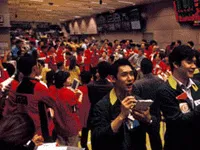
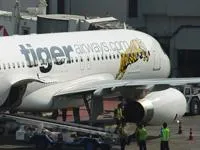

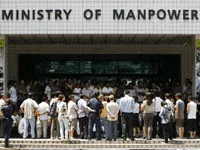
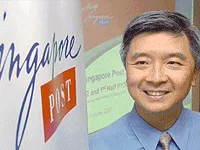

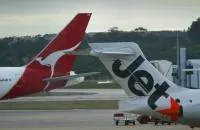




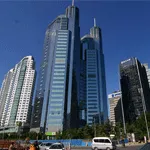

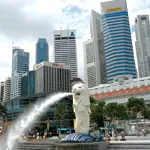


 Advertise
Advertise
![Video [Event News]](https://cmg-qa.s3.ap-southeast-1.amazonaws.com/s3fs-public/styles/event_news_featured_article/public/2025-05/screenshot-2025-05-08-at-4.58.53-pm_0.png.webp?itok=Kud35sMs)
![Event News SBR 9 Lorem Ipsum [8 may]](https://cmg-qa.s3.ap-southeast-1.amazonaws.com/s3fs-public/styles/event_news_thumbnail/public/2025-05/a_hand_pointing_to_a_futuristic_technology_5b87c9d0e3_8.png.webp?itok=DTh_dbYp)
![Event News SBR 9 Lorem Ipsum [8 May]](https://cmg-qa.s3.ap-southeast-1.amazonaws.com/s3fs-public/styles/event_news_thumbnail/public/2025-05/a_hand_pointing_to_a_futuristic_technology_5b87c9d0e3_7.png.webp?itok=vzDAzb6V)
![Event News SBR 8 Lorem Ipsum [8 May]](https://cmg-qa.s3.ap-southeast-1.amazonaws.com/s3fs-public/styles/event_news_thumbnail/public/2025-05/a_hand_pointing_to_a_futuristic_technology_5b87c9d0e3_6.png.webp?itok=jvHFc4P6)
![Video [Event News]](https://cmg-qa.s3.ap-southeast-1.amazonaws.com/s3fs-public/styles/video_thumbnail/public/2025-05/screenshot-2025-05-08-at-4.58.53-pm_0.png.webp?itok=yZnI0YBb)
![Video 1 SBR [8 May]](https://cmg-qa.s3.ap-southeast-1.amazonaws.com/s3fs-public/styles/video_thumbnail/public/2025-05/screenshot-2025-05-08-at-4.58.53-pm.png.webp?itok=9AAeRz_k)

